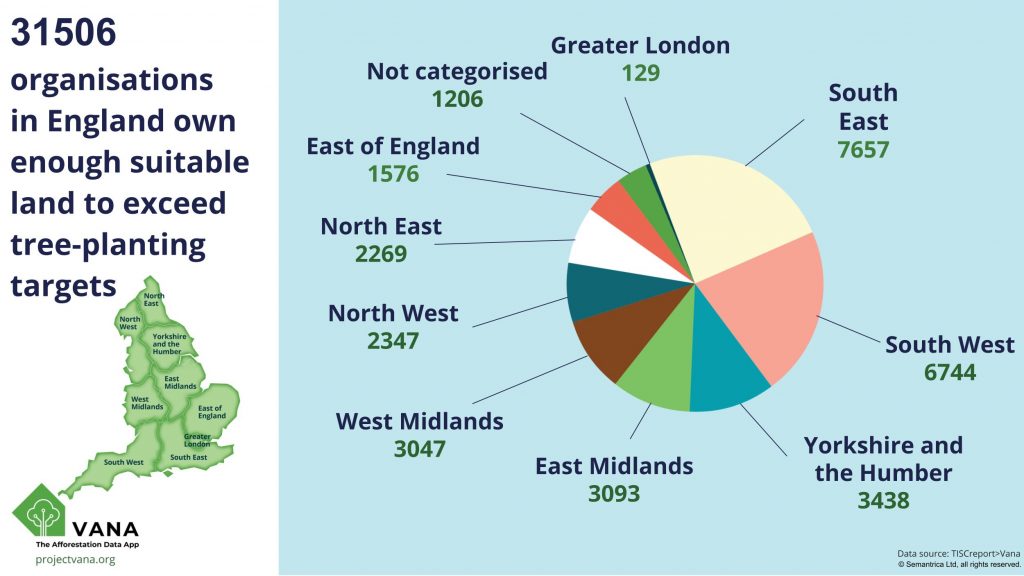
Following G7 pact to protect 30% of global land for nature restoration Project Vana confirm corporates have a huge part to play to hit UK targets
As you may know, the G7 met in Cornwall this past weekend to discuss the most pressing international challenges for the coming years. Climate change and biodiversity loss present a huge challenge to world leaders, with major change needed in order to achieve effective climate action. The G7 conference location in Carbis Bay was chosen because the South West of England is seen to be central to the UK’s green technology sector[1]https://www.bbc.co.uk/news/world-49434667. Impact tech, of which green tech is a subset, is making a name for itself in the UK. As third in the world for investment into impact tech, investment has increased 160% since 2018[2]https://technation.io/report2021/#key-statistics. This technology is key in advancing our measures and systems to tackle world issues.
The G7 Nature Compact, outlined at the Summit on Sunday, commits world leaders to taking bold action against climate change in the coming years. One of the major areas of focus in discussions was land restoration, with pledges to “dramatically increase investment in nature from all sources”, the G7 aim to conserve or protect at least 30% of global land in the next decade.
Many countries have pledged to increase tree cover as part of climate action measures. However all are facing similar issues because much of the land required is held privately, and it is difficult to see who owns it. England is ahead of the game because, through Vana, we now knows where suitable land is *and* who owns it, thanks to the strength of its open data infrastructure.
From Vana’s connected data infrastructure, it is clear that corporates are overwhelmingly the best hope of enabling England to achieve its net-zero targets. The Vana engine has uncovered that, across the UK, corporates own a total of 235,606 hectares of woodland opportunity. This equates to 130.89% of land needed to hit UK targets for 2042, as outlined in the 25 Year Environment Plan.
Says Jaya Chakrabarti, CEO of Project Vana, “It’s great to see these commitments. We’re building the data engine to help make them happen, and the data is telling us that corporate landowners are key to hitting those targets. “
To address the negative impacts on the climate, G7 will drive incentives towards tackling deforestation by supporting sustainable supply chains. The Vana team have already been tracking supply chains through the Section 54 Modern Slavery Act lens, in our open-data platform TISCreport.org.
Corporates not only own significant land assets including more than 20% of potential woodland[3]https://friendsoftheearth.uk/ in England, as identified by the Vana engine, but they also command substantial purchasing power on global supply chains. This power could be used to drive further sustainability through those supply tiers. Beyond this, it will require corporate investment in Nature through pensions and holdings in order to scale action at the rate required to mitigate climate-related damage.
In England, Vana has already identified which corporates own land suitable for nature restoration including afforestation. Within England, Vana shows corporates own 235,605 hectares of land suitable for woodland. Afforestation across this land could provide the nation with the tree cover needed to hit restoration and carbon emissions targets in line with UK ambitions.
The UK has set the world’s most ambitious climate change target, aiming to cut emissions faster than any other G7 country. And with the climate crisis escalating, the pressure is on to kick start major land restoration and regeneration across the UK. As the ninth largest manufacturing nation in the world[4]https://www.themanufacturer.com/uk-manufacturing-statistics/, high populations and susceptibility to sea level rise, the UK is at risk of negative effects of climate change such as flood risk and business continuity, the vulnerability of people and infrastructures.
But it’s not all doom and gloom, the UK also holds many valuable ecological assets. As one of the world’s most economically advanced nations[5]https://www.bbc.co.uk/news/world-49434667, the UK has the potential to lead innovation in action against climate change, and with access to large amounts of rural areas, Vana can assist UK corporations in utilising available land to create carbon-capturing woodland.
Full release attached. To find out how to get involved, companies, community groups and policy makers are encouraged to sign up for the Vana newsletter on https://blog.projectvana.org/.
